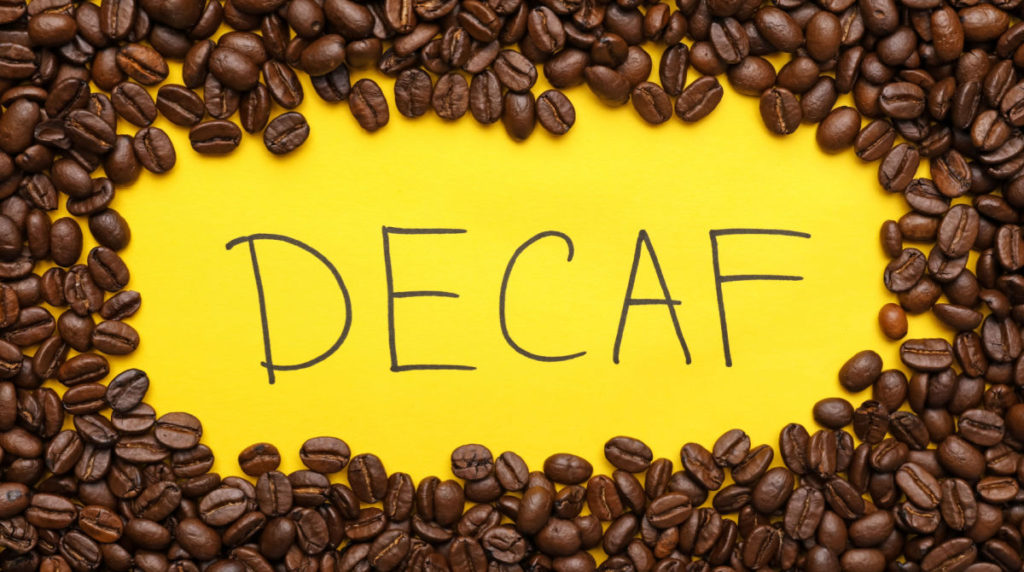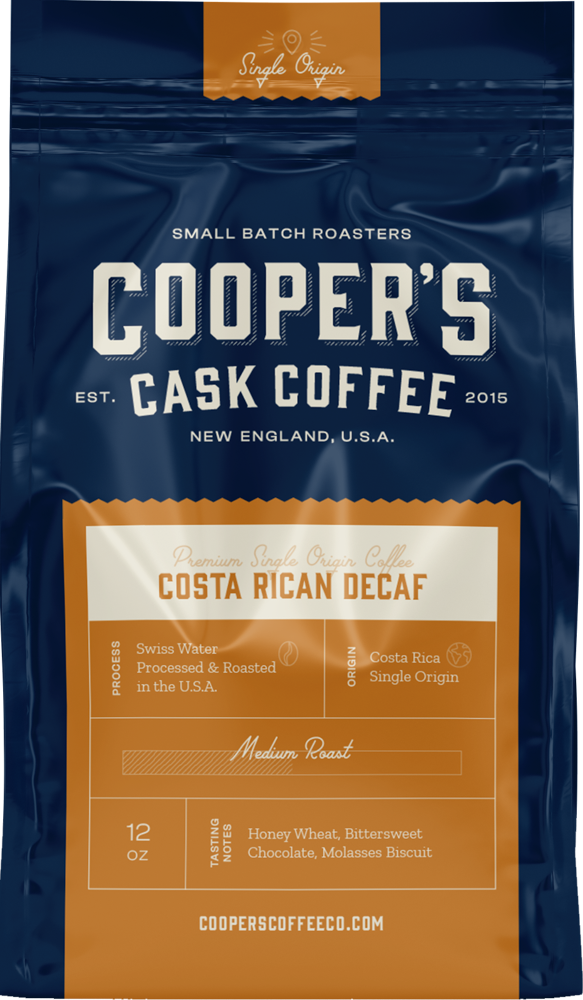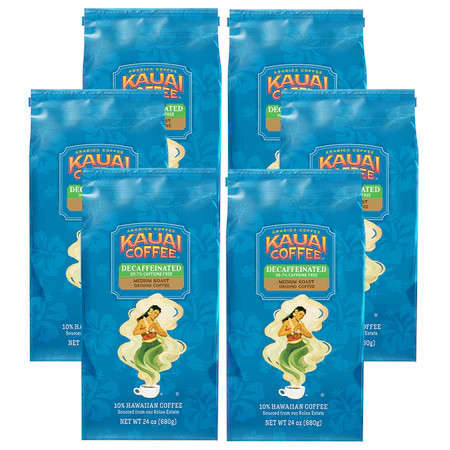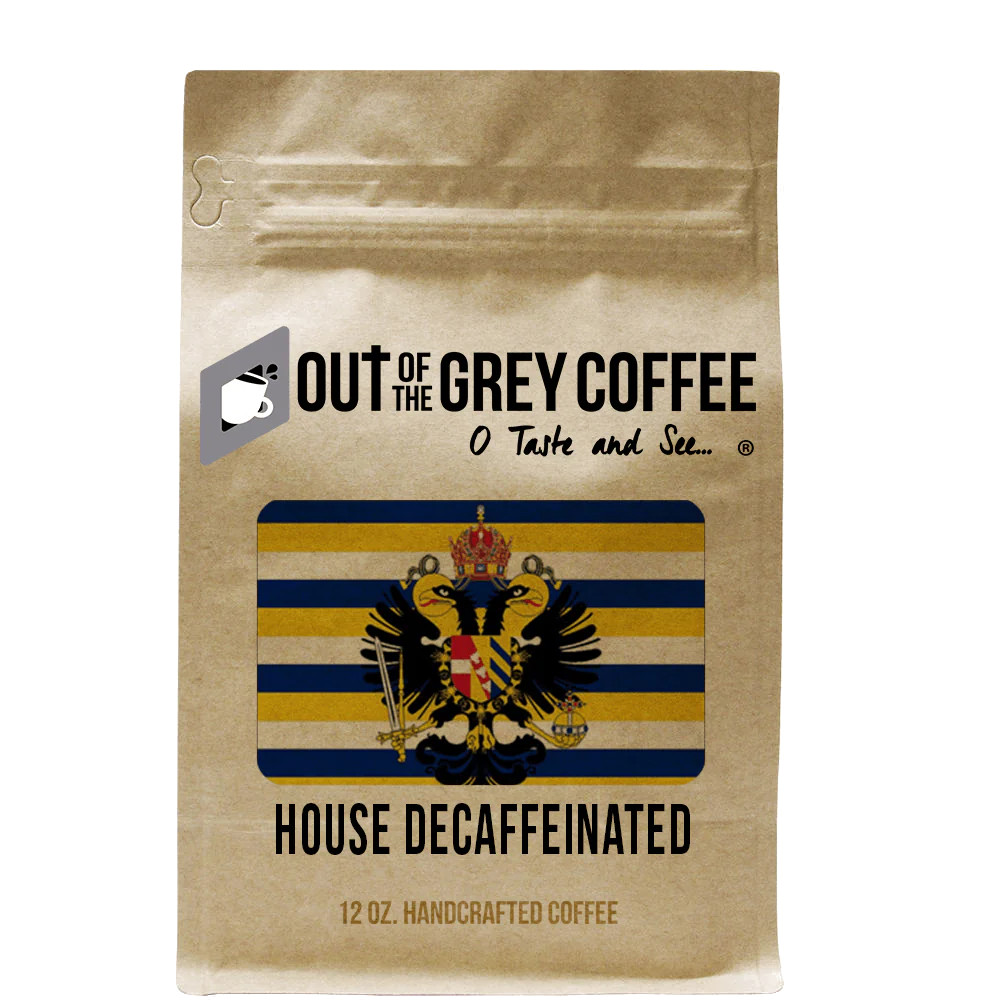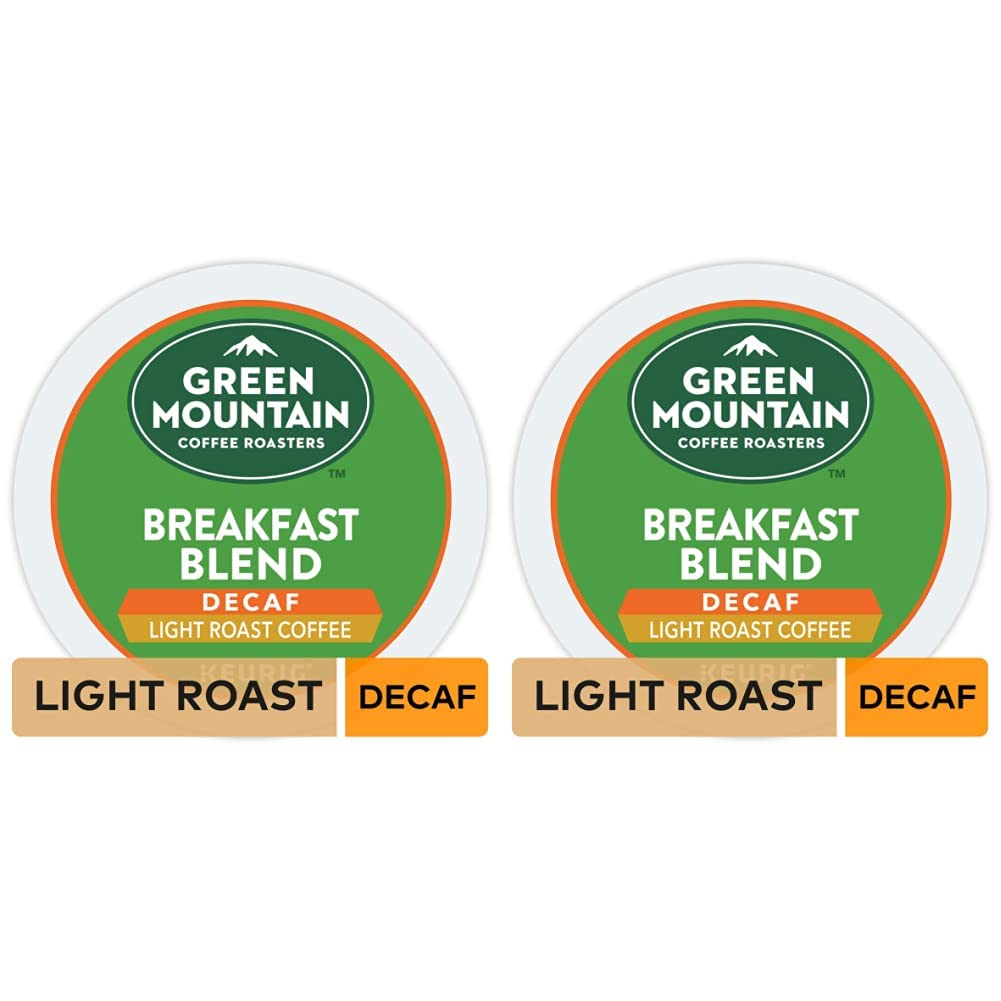Who made decaf coffee, you ask? Well, it all began with a German coffee merchant named Ludwig Roselius, who accidentally discovered decaf coffee in 1903.
I enjoy the spark in my coffee, but in this article, we’ll delve deeper into the history of decaf coffee. We will briefly mention the methods used to remove caffeine from coffee beans before we go on to the benefits and taste of this kind of coffee.
Oh yes, some of the links are affiliate links. Meaning if you click on a link and as a result, you buy from them, I may get a little commission. However, this will not make your products any more expensive. See more details in my privacy policy.
In this blog post we will look at the following:
But first, 3 decaf coffee choices
I put together a list of 3 good choices if you are looking for decaf.
Who made decaf coffee? The origin.
I had a deep dive into where do coffee originate from here. Now, in this post about who made decaf coffee you will learn that the origins of decaf coffee can be traced back to the early 1900s. Ludwig Roselius, a German coffee merchant, discovered the decaffeination process by accident. Roselius was known for his innovative methods in the coffee industry, and he had been experimenting with different ways to improve the flavor and shelf life of his coffee beans.
One day, a shipment of coffee beans that Roselius had ordered was accidentally exposed to seawater during transport. To his surprise, the beans lost much of their caffeine content without losing their flavor. Roselius realized that the saltwater had somehow extracted the caffeine from the beans, and he began to experiment with different methods of decaffeination.
Ludwig Roselius was the one who made decaf coffee. But with an accident of seawater.
At first, Roselius tried using a variety of solvents, including benzene, which was a common solvent used in the decaffeination process at the time. However, he quickly realized that benzene was toxic and potentially harmful to human health. He then began experimenting with other solvents, such as chloroform and ethyl acetate, which were safer but still had some drawbacks.
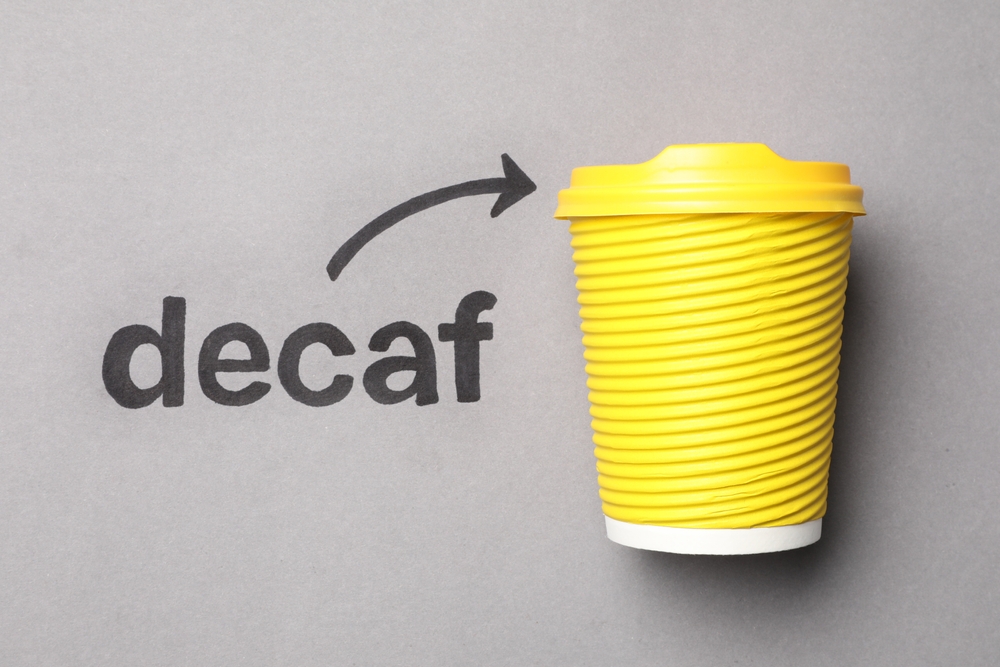
The Roselius Process
Despite the challenges, Roselius was determined to find a safe and effective way to decaffeinate coffee beans. He eventually developed a process that used steam and a solvent made from water and benzene, which he called “Kaffee Hag.” This method proved to be very successful and was widely adopted by other coffee producers.
However, over time, concerns about the safety of benzene and other solvents led to the development of alternative decaffeination methods. Today, there are many different methods of decaffeination, each with its own advantages and disadvantages, as we discussed earlier.
In conclusion, we don’t find the decaf coffee on the coffee origins map. But while the origins of decaf coffee may have been accidental, the discovery has had a significant impact on the coffee industry and has allowed many people to enjoy the taste of coffee without the stimulating effects of caffeine.
The early methods of decaffeination may have been imperfect, but they paved the way for the development of safer and more effective methods that we use today.
How is Decaf Coffee made? 2 Main Modern Ways to Process for Decaffeination
In an article about “Who made decaf coffee?” I thought it was natural to include a section about the modern ways to process decaffeination. So, how is decaf coffee made? Well, over time, this process was refined and improved upon, leading to the modern decaffeination methods we use today.
Let’s learn more about how decaf coffee is made in another post, but in brief here they are:
1. Solvent-based processes:
- Direct solvent method
- Indirect solvent method
- Swiss Water Process
2. Non-solvent processes:
- Carbon dioxide process
- Water process
- Triglyceride process
Each of these processes has its own advantages and disadvantages, and the choice of which method to use often depends on factors such as cost, environmental concerns, and desired flavor profile.
Regardless of the method used, decaf coffee provides a way for individuals to enjoy the taste of coffee without the stimulating effects of caffeine. Here you find more funny facts about coffee, regardless of caffeine or not.
Here you can read about another traditional way to brew coffee: cowboy coffee.
Decaf coffee benefits – Why the need for decaf coffee
Decaf coffee has become a popular option for many people who want to enjoy the taste of coffee without the stimulating effects of caffeine. Here are some of the benefits and uses of decaf coffee:
- Reduce caffeine intake: For those who are sensitive to caffeine or are trying to limit their intake, decaf coffee provides a way to enjoy the taste of coffee without the negative effects of caffeine, such as jitteriness, anxiety, and insomnia.
- Enjoy coffee later in the day: For some people, drinking coffee in the afternoon or evening can disrupt their sleep. Decaf coffee provides a way to enjoy the taste of coffee without the stimulating effects that can interfere with sleep.
- Medical conditions: Some medical conditions, such as high blood pressure or anxiety disorders, may be worsened by caffeine. Decaf coffee provides a way for individuals with these conditions to still enjoy the taste of coffee without aggravating their symptoms.
- Pregnant or nursing mothers: Pregnant or nursing mothers are often advised to limit their caffeine intake, as excessive caffeine can have negative effects on the developing fetus or infant. Decaf coffee provides a way for them to still enjoy the taste of coffee without harming their baby.
- Social situations: For some people, drinking coffee is more about the social aspect than the caffeine boost. Decaf coffee provides a way to still participate in social situations involving coffee, without having to worry about the effects of caffeine.
Feel free to pin the image. Save it for later when in need of decaf coffee!

Overall, decaf coffee provides a way for individuals to enjoy the taste of coffee without the negative effects of caffeine. While it may not provide the same energy boost as regular coffee, it can still be a satisfying and enjoyable beverage.

Factors Affecting the Flavor of Decaf Coffee:
Decaffeinated coffee often gets a bad rap for its perceived lack of flavor. However, many factors can affect the taste of decaf coffee, including the origin and varietal of the beans, the roasting and storage process, and the decaffeination method used. In fact, some decaf coffees can be just as flavorful as their caffeinated counterparts.
The origin and varietal of the beans can have a significant impact on the flavor of decaf coffee. For example, decaf coffee made from high-quality Arabica beans will generally have a better flavor than decaf coffee made from lower-quality Robusta beans.
The roasting and storage process can also affect the flavor of decaf coffee. Over-roasting can lead to a burnt or bitter taste, while proper storage can help preserve the flavor and aroma of the beans.
Finally, the decaffeination method used can also affect the flavor of the coffee. Solvent-based methods can sometimes leave behind a chemical aftertaste, while water-based methods like the Swiss Water Process can result in a more natural and authentic flavor.
A fun fact: do decaf coffee have caffeine?
Many people wonder do decaf coffee have caffeine. The short answer is that decaf coffee does contain some caffeine but in much smaller amounts than regular coffee.
The amount of caffeine in decaf coffee can vary depending on the type of beans used, the decaffeination method, and the serving size. On average, an 8-ounce cup of decaf coffee contains around 2-5 milligrams of caffeine, while a regular cup of coffee contains around 70-140 milligrams of caffeine.
The reason why decaf coffee still contains some caffeine is that it is nearly impossible to remove 100% of the caffeine from the coffee beans. Most decaffeination methods aim to remove at least 97% of the caffeine, but trace amounts may still remain.
This is why decaf coffee is not recommended for individuals who are highly sensitive to caffeine or who need to completely eliminate caffeine from their diets.
However, for most people, decaf coffee is a good alternative to regular coffee, especially if they enjoy the taste of coffee but want to limit their caffeine intake.
Decaf coffee can also be a good option for those who enjoy coffee in the evening but don’t want the caffeine to interfere with their sleep.It’s important to note that decaf coffee is not completely caffeine-free and may still have some effects on the body.
Some studies have found that decaf coffee can still stimulate the production of stomach acid and increase heart rate in some individuals, although these effects are generally milder than with regular coffee.
Overall, if you are looking to reduce your caffeine intake but still enjoy the taste of coffee, decaf coffee can be a good option. However, if you are highly sensitive to caffeine or need to completely eliminate caffeine from your diet, it may be best to avoid decaf coffee altogether and opt for caffeine-free alternatives such as herbal tea.
Now, you got some more ideas around the term decaf coffee. Here you can read more about how to brew decaf coffee. I will let you know a few tricks for brewing decaf on regular coffee makers for the best results.
Conclusion – who made decaf coffee
So, who made decaf coffee? It was Ludwig Roselius, a German coffee merchant who stumbled upon the idea while his shipment of coffee beans was soaked in seawater. Since then, decaffeinated coffee has become a popular option for those who want to enjoy the taste of coffee without the caffeine.
Today, there are many different methods of decaffeination, each with its own advantages and disadvantages. However, regardless of the method used, it is important to remember that the flavor of decaf coffee can be just as rich and complex as regular coffee, as long as the beans are of high quality and properly roasted and stored. So go ahead and enjoy your decaf coffee, guilt-free!
If you are thinking about how to make your own coffee brand and if you should include decaf coffee in your line, you will now have more insight on the matter and choice.
FAQ on Who made decaf coffee
Where did decaf coffee originate?
The exact origin of decaf coffee is not entirely clear, but it is believed to have been first created in the early 1900s in Europe. The initial process involved steaming the beans, then rinsing them with a solvent to remove the caffeine. Since then, the decaffeination process has evolved and new methods have been developed to improve the taste and minimize environmental impact. Today, decaf coffee is enjoyed by many people around the world as a way to enjoy the taste of coffee without the stimulating effects of caffeine.
Is decaf coffee completely caffeine-free?
No, decaf coffee is not completely caffeine-free. While the caffeine content is significantly reduced, there is still a small amount of caffeine remaining in decaf coffee.
Does decaf coffee taste different than regular coffee?
Decaf coffee can taste slightly different than regular coffee, as the decaffeination process can affect the flavor profile of the beans. However, with advancements in decaf coffee technology, the taste difference is becoming less noticeable.
Is decaf coffee less healthy than regular coffee?
Decaf coffee is generally considered to be just as healthy as regular coffee, as both contain antioxidants and other beneficial compounds. However, it is important to note that decaf coffee can still have negative effects on some individuals, such as those with acid reflux or stomach ulcers.

